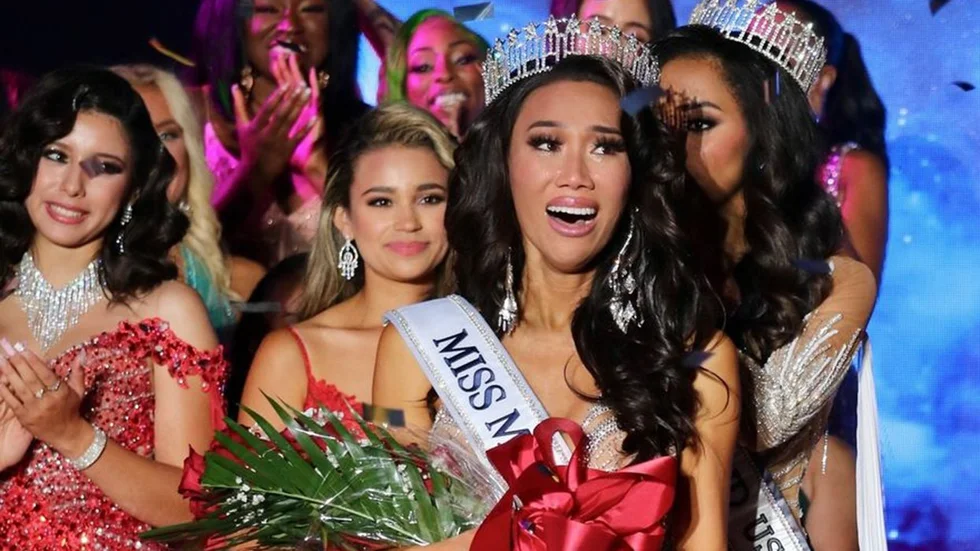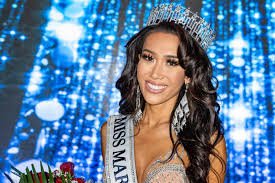Bailey Anne Kennedy, a Cambodian American trans woman and military spouse, recently claimed the title of Miss Maryland USA and is courageously confronting the transphobic backlash that followed her victory.
At 31 years old, Kennedy immigrated from Cambodia to the United States at the tender age of 11. Inspired by Miss USA’s decision to remove restrictions on married and older contestants, she ventured into beauty pageantry and triumphed, clinching the state title last week. Her jubilant celebration graced the Capital Pride Parade in Washington, D.C., on Saturday.

In the wake of her win, Kennedy shared her reflections on Instagram, musing, “Sometimes the underdog does win in the end.” Yet, amidst her triumph, she faced a barrage of transphobic criticism on social media, questioning her worthiness and the fairness of her victory over cisgender competitors. Undeterred, Kennedy addressed these detractors with resilience, asserting, “Not everyone has to agree with the spaces that you occupy, and it doesn’t mean that you aren’t worthy of these opportunities.”
Moreover, Miss Maryland USA lent unequivocal support to Kennedy and the transgender community, affirming, “Since 2012, trans women have been welcomed into our organization.” Embracing authenticity and opportunity, the organization championed Kennedy’s win as a triumph for all who dare to dream against the odds.
Kennedy’s journey to the crown is steeped in personal sacrifice and cultural pride. Married to an active-duty member of the U.S. Marine Corps, she once believed her own aspirations would perpetually take a backseat to her spouse’s service. However, the winds of change blew with Miss USA’s rule amendment, prompting Kennedy to seize the moment and advocate for fellow military families.
Her Cambodian heritage further enriches her narrative, as she shares the challenges of navigating language barriers upon her arrival in the U.S. Her victory resonates as a testament to perseverance, overcoming not only societal biases but also personal hurdles.
Reflecting on her historic win, Kennedy’s emotions ran deep, recognizing the significance of her achievement beyond herself. “I knew that it only took 67 years for married women to compete freely,” she remarked. “Let alone to have an immigrant who happened to be bullied all her life for her accent and her different ways of doing things.”
In her triumph, Kennedy stands as a beacon of hope and resilience, inspiring generations to come to embrace their authentic selves and defy the limitations imposed by society.


